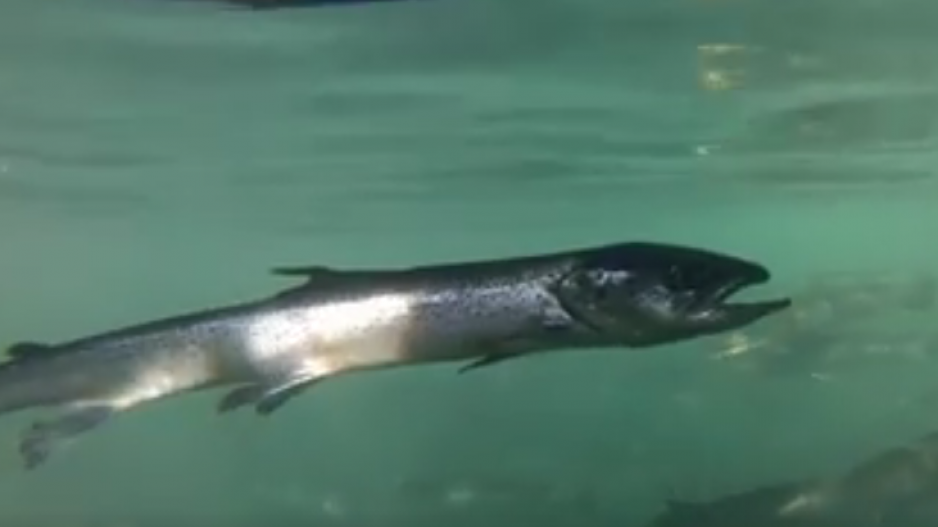A new study by the Department of Fisheries and Oceans suggests a link between the Piscine orthoreovirus (PRV) and a disease of the heart in farmed Atlantic salmon from B.C. fish farms.
The study, led by DFO scientist Kristina Miller, confirmed heart and skeletal muscle inflammation (HSMI) disease in Atlantic salmon at a fish farm where the study was conducted over one entire production cycle.
It also confirmed that PRV appeared to be the one consistent pathogen found in those diseased fish.
As part of the study, scientists looked at 44 possible “agents.” It found three pathogens – PRV and two parasites – to be highly prevalent in the hearts of diseased fish.
“However, PRV alone was statistically correlated with the occurrence and severity of histopathological lesions in the heart,” the study states.
Emiliano Di Cicco, a visiting scientist at the Pacific Biological Research Station and one of the authors of the recent study, confirmed the findings are not conclusive that PRV is the cause of HSMI, but said there does seem to be a strong correlation.
“We also demonstrated that there is a direct and statistical correlation between fish with lesions and fish without lesions, which means that fish without lesions tend to have no PRV… compared to, on the other hand, fish that have lesions, and they have PRV,” he told Business in Vancouver. “So basically you are demonstrating that the fish that are sick, they have PRV.”
Alexandra Morton, an independent biologist who believes fish farms pose a threat to wild salmon through the transmission of diseases, feels vindicated by the study. She is currently looking for evidence of PRV in the vicinity of fish farms.
“Until now, government and industry in B.C. have argued the virus is benign because HSMI doesn’t occur,” Morton told BIV. “Now we know HSMI does occur. What the government was saying is that HSMI doesn’t occur in British Columbia, period. Now we know that that’s not true.”
But in any diseased organism, a number of pathogens may be present. It can be difficult to directly link one particular pathogen as the cause of the disease.
It’s particularly difficult in PRV, because it cannot yet be grown in a lab. If it could be cultivated, it could be introduced into healthy fish to see if it developed any diseases. Scientists are therefore limited to trying to find correlations between the virus and the disease when both are found in fish.
One finding that had cast doubt on the theory that PRV caused HSMI is that the virus has been detected in healthy fish.
But it appears that as long as it is only in the red blood cells of a fish, it remains benign. The study suggests that when it moves into the heart – something that could occur when a fish’s metabolism is stressed – it then may be linked to the HSMI disease.
“The problem is – we don’t know how – but once it moves from the red blood cells to the heart, that’s where you get the lesions and you get HSMI,” Di Cicco said.
HSMI isn’t always fatal. Fish can have the condition and remain healthy. Nor does it pose any human health concerns for those who eat the fish.
If PRV is causing HSMI, it may be the case that it is more of a concern for farmed salmon than wild, since it seems to affect fish when they are stressed, and farmed fish are prone to stresses -- related to confinement -- to which wild fish may not be prone.
But Morton believes there is reason to be concerned that the disease could transmit from farmed fish to wild salmon. That is something that will require further study.
“The virus can be found in Pacific salmon,” Di Cicco said. “Whether it’s causing disease or not, we don’t know.
“We are going to study more the issue with Pacific salmon.”




